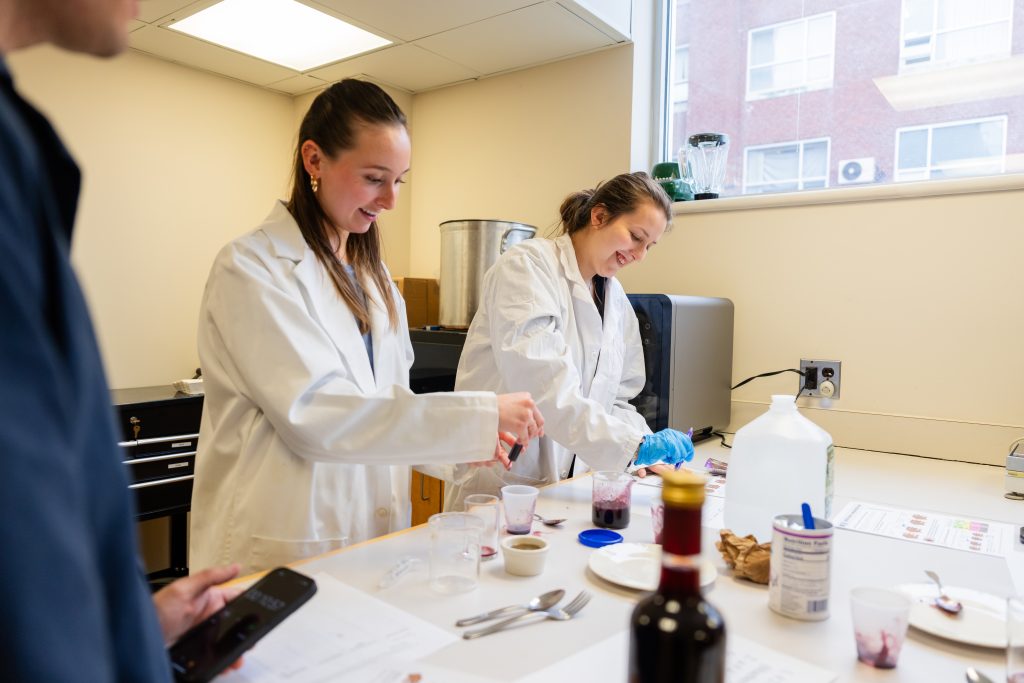
Online M.S. in Food Science & Human Nutrition

30 Credits

Fall Deadline: March 15 | Spring Deadline: October 15 | Summer Deadline: February 15

No GRE/GMAT Required
About the Program
The online M.S. in Food Science and Human Nutrition emphasizes professional development, research, and communication. Students will gain the knowledge and skills necessary for success as food industry and nutrition professionals. You’ll also work with full-time faculty to select courses and plan your career.
For more information, visit the School of Food and Agriculture website.
Contact Us
Have questions about earning your M.S. in Food Science and Human Nutrition online with UMaine? Contact a UMaineOnline advisor.
Curriculum
Below is the tentative class schedule. Admitted students will be informed of any schedule changes. Courses include pre-recorded lectures, links to reading materials, and live discussion sessions. Students taking 1-2 classes per semester typically graduate within 24 months.
The online M.S. in Food Science and Human Nutrition does not require a thesis.
Admissions
Application Deadlines
- Fall Semester: March 15
- Spring Semester: October 15
- Summer Semester: February 15
Applications submitted after the deadlines will be considered only if space is available.
Careers
Current and former students work in beverage, food ingredient, and consumer packaged food companies and government research facilities in product development, quality assurance, regulatory oversight, and sensory science roles. Students focusing on nutrition are employed in long-term care facilities, Women, Infants and Children (WIC) centers, exercise studios, employee wellness programs, and food companies.
According to the U.S. Bureau of Labor Statistics (BLS), employment of agricultural and food scientists is projected to grow 6% from 2022 to 2032, with about 3,000 openings per year. The median annual wage for agricultural and food scientists was $76,400 in May 2023, higher than the median yearly wage for all occupations of $48,060.






